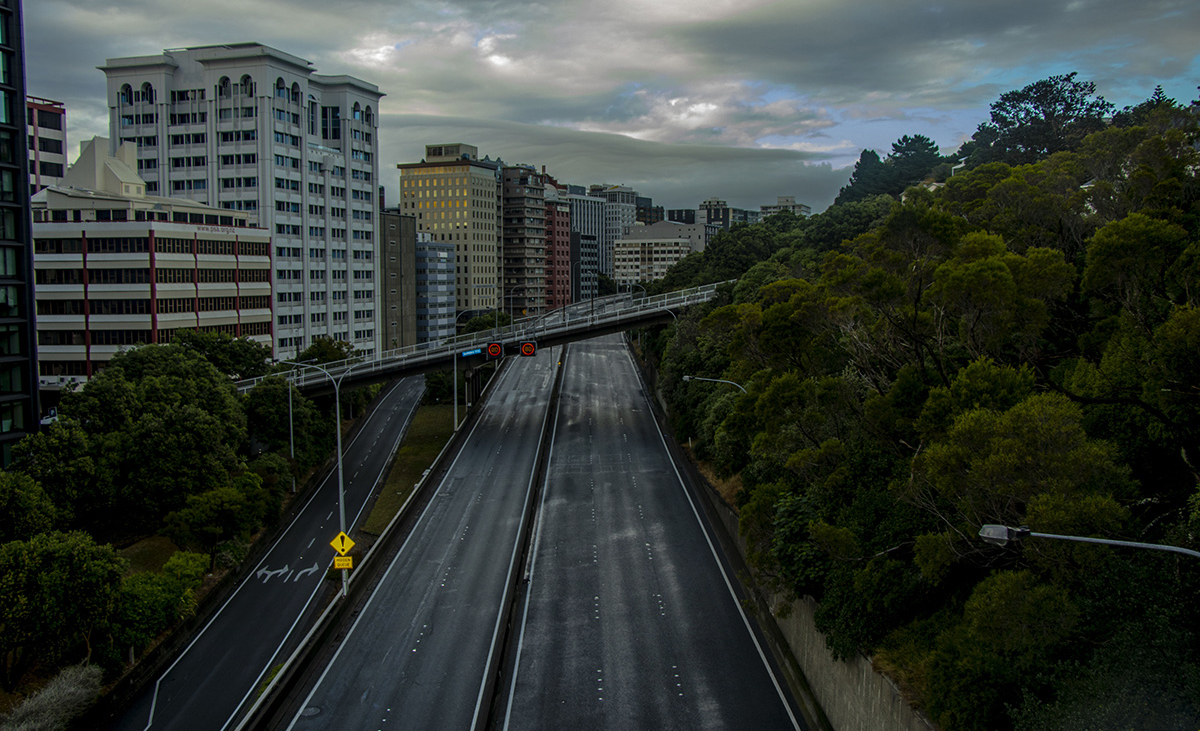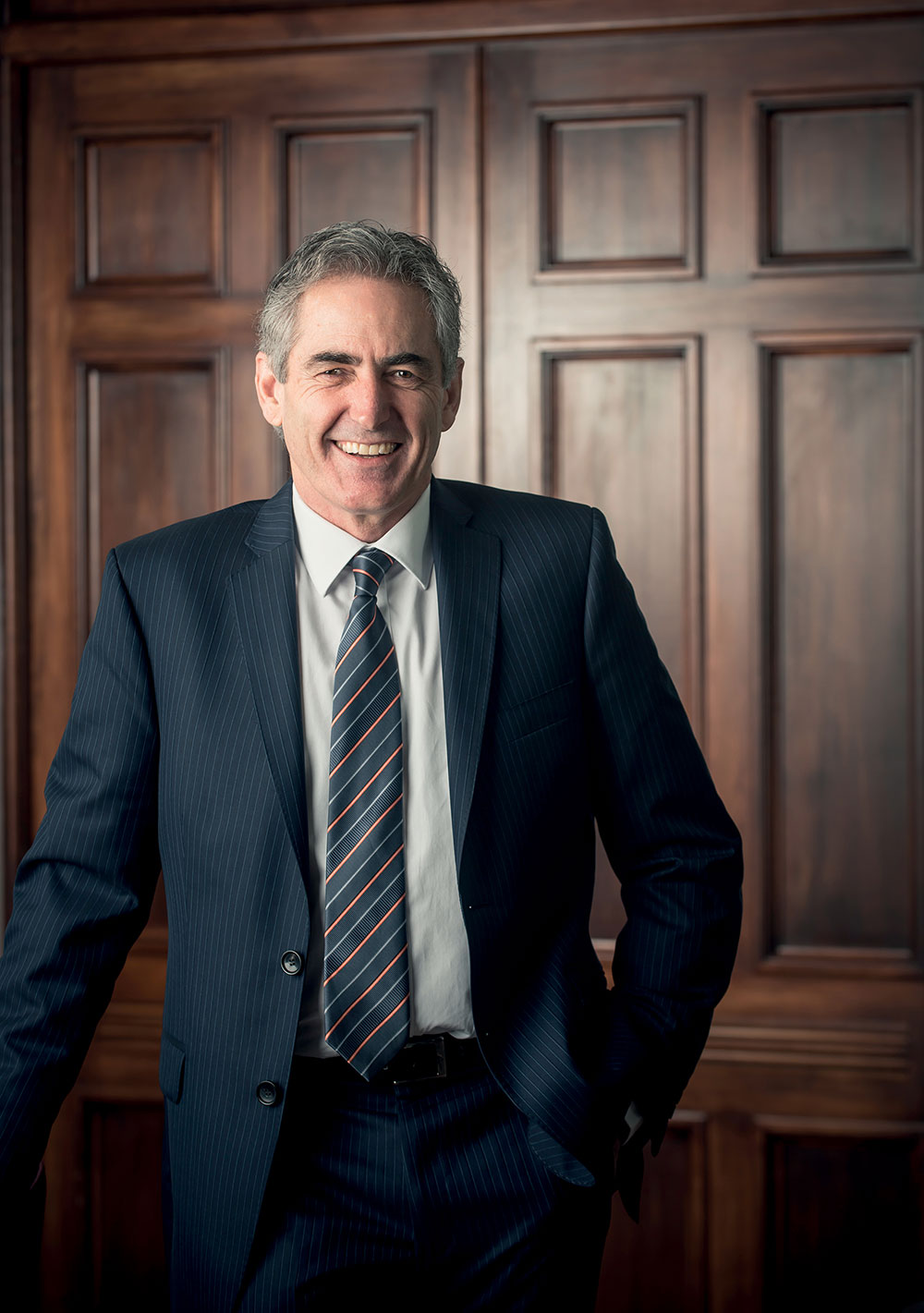Image above: Bolton Street, Wellington at 8.50 am March 27 2020 by Baz Macdonald, Re: News
Welcome to an issue of Victorious like no other, in a year like no other for Te Herenga Waka—Victoria University of Wellington, New Zealand, and the world. Wherever in the world you are, I hope you are safe and well, and are managing to navigate the impacts of COVID-19.
The University Council, senior leadership team, and I are proud of how our staff and students have risen to the challenge of those impacts and the adjustments needed to continue teaching, learning, and research in our changed circumstances.
Our staff moved quickly and successfully to teaching online—and later both online and in person—to ensure minimum disruption to students’ learning, and students’ assessment of their experience has been positive.
You will discover as you read on that our researchers have not just found ways to continue with existing work, but have also embarked on new COVID-19-related research, from helping to find a vaccine to understanding the pandemic’s economic consequences.
At the same time, they have been prominent in the media and elsewhere, providing much-needed advice, analysis, and commentary, whether addressing and helping with mental wellbeing in COVID-19’s wake, examining and speaking about the legal aspects of New Zealand’s lockdown, or discussing the outlook and options ahead for business.
Another way in which the University has been proud to help during the pandemic is by offering a scholarship covering all tuition fees for Trimester 2 2020 for domestic students whose work or life was disrupted by COVID-19. More than 500 were awarded.
As well as capturing the University’s responses to COVID-19, this issue of Victorious includes examples of our other medical research, including into a malaria vaccine, detecting type 2 diabetes, and developing virtual-reality machines to train technicians to use radiation-therapy equipment.



